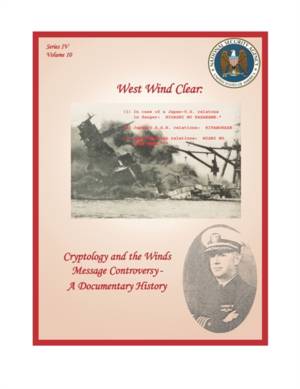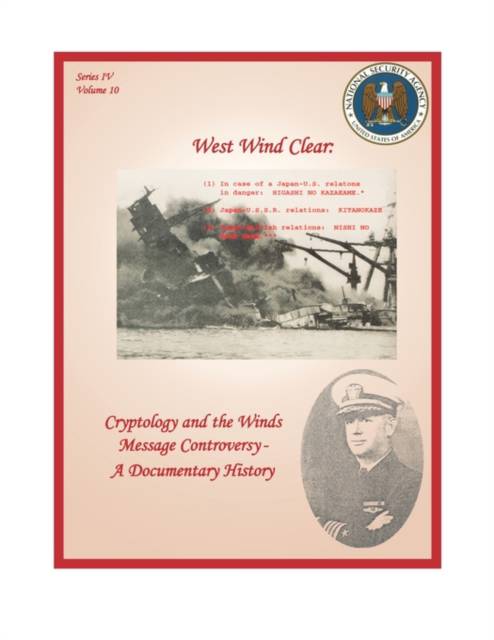
Bedankt voor het vertrouwen het afgelopen jaar! Om jou te bedanken bieden we GRATIS verzending (in België) aan op alles gedurende de hele maand januari.
- Afhalen na 1 uur in een winkel met voorraad
- In januari gratis thuislevering in België
- Ruim aanbod met 7 miljoen producten
Bedankt voor het vertrouwen het afgelopen jaar! Om jou te bedanken bieden we GRATIS verzending (in België) aan op alles gedurende de hele maand januari.
- Afhalen na 1 uur in een winkel met voorraad
- In januari gratis thuislevering in België
- Ruim aanbod met 7 miljoen producten
Zoeken
West Wind Clear
Cryptology and the Winds Message Controversy - A Documentary History
Robert J Hanyok, David P Mowry
Paperback | Engels
€ 45,95
+ 91 punten
Omschrijving
Did the American Government and President Franklin Delano Roosevelt have advance information about Japan's attack on Pearl Harbor and was this fact later suppressed, either to conceal incompetence or because the President wanted an act of aggression to force America into war with the Axis Powers? For decades, professional and amateur historians alike have scrutinized the voluminous and sometimes contradictory trail of evidence surrounding this historic and tragic event to find an answer. One of the most written-about pieces of this historical puzzle is the so-called "West Wind Execute" message, Japan's code phrase to advise its diplomats abroad that an attack on America was imminent. In "West Wind Clear: Cryptology and the Winds Message Controversy - a Documentary History", the U.S. National Security Agency's Center for Cryptologic History has tackled the complex history of this message, when it was sent, and why its existence or non-existence has exercised the imaginations of academics, amateur historians, and conspiracy buffs since the 1940s. Crucially, this book includes many key documents, some never before published, dealing with the voluminous Japanese signals traffic leading up to the Pearl Harbor attack and the timing of signals interception and decoding. The authors state that the main source of continuing debate over the "who knew and when" question resulted from a number of contradictory statements by a well-respected American cryptographer, Captain Laurence Safford, USN, whose reliability as a witness was undermined during the hearings of the 1946 Joint Congressional Committee investigation of the Pearl Harbor debacle. Despite these findings, the West Wind controversy has persisted in popular accounts that lent credibility to the stories of Safford and Ralph Briggs, a radio operator who many years after the fact claimed to recollect a West Wind Execute message before the attack. "West Wind Clear" makes a strong and well-documented case against a suppressed warning of war, although perhaps no account of the run-up to the Pearl Harbor debacle may ever lay to rest the many conspiracy theories bruited about since 1941. For anyone interested in the continuing debate, this book is an indispensable research and reference work.
Specificaties
Betrokkenen
- Auteur(s):
- Uitgeverij:
Inhoud
- Aantal bladzijden:
- 350
- Taal:
- Engels
Eigenschappen
- Productcode (EAN):
- 9781780390116
- Verschijningsdatum:
- 1/01/2011
- Uitvoering:
- Paperback
- Formaat:
- Trade paperback (VS)
- Afmetingen:
- 216 mm x 279 mm
- Gewicht:
- 811 g

Alleen bij Standaard Boekhandel
+ 91 punten op je klantenkaart van Standaard Boekhandel
Beoordelingen
We publiceren alleen reviews die voldoen aan de voorwaarden voor reviews. Bekijk onze voorwaarden voor reviews.









